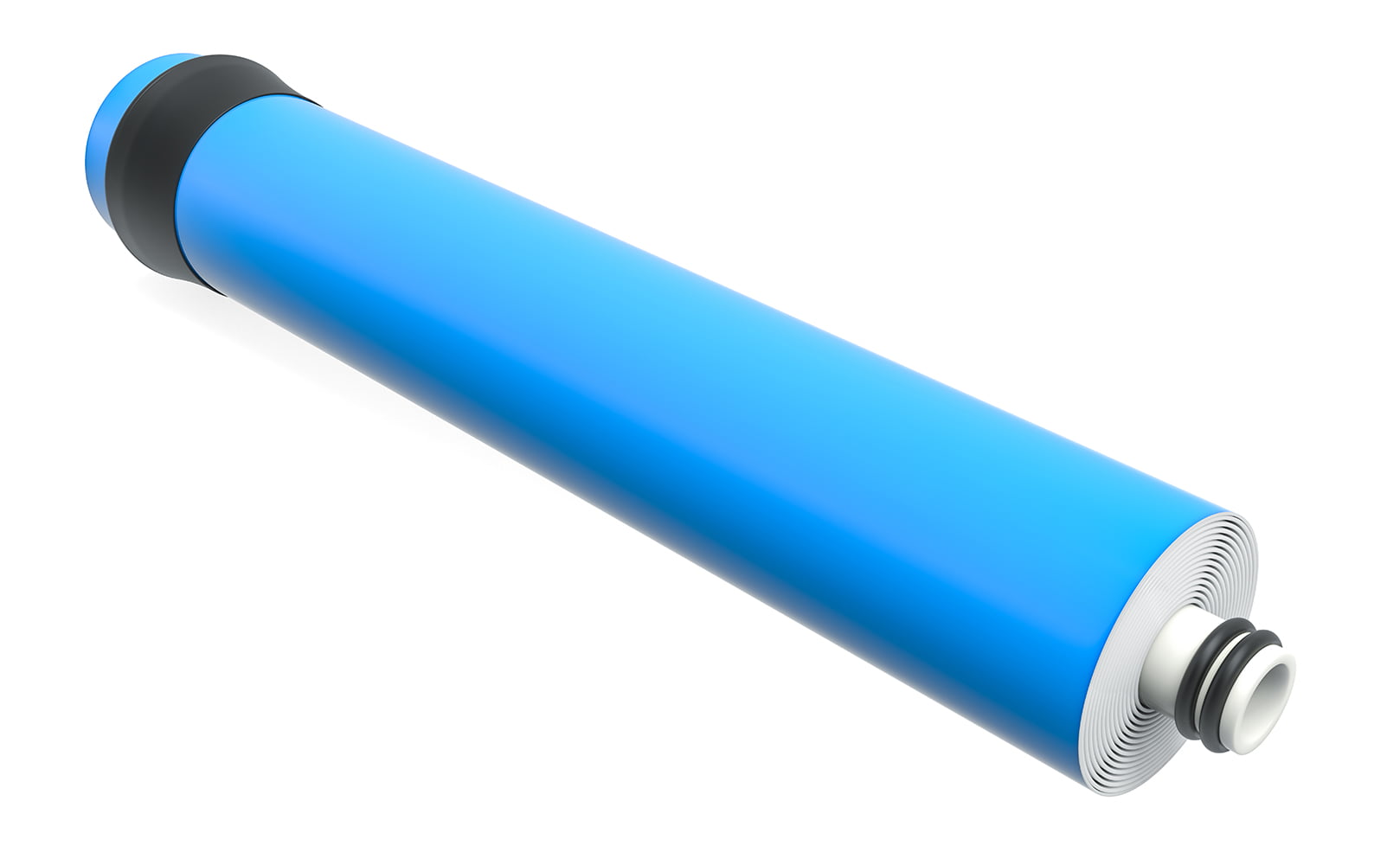RO Water Tastes Bad After Changing Filters? Here’s What to Do!
Written by: Gene Fitzgerald // Last Updated: Aug 21, 2023
This page may contain affiliate links. If you buy a product or service through such a link we earn a commission at no extra cost to you. Learn more.
Regular filter replacements are an important part of maintaining a reverse osmosis system. If you forget to do it, you will eventually notice a significant decline in the quality of your water.
However, what about cases when you replace one or more filters with fresh ones, and water actually tastes worse afterward?
Let’s discuss!
Key Takeaways
Your RO water may taste bad after changing filters for the following reasons:
- You didn’t prime your reverse osmosis membrane or pre/post-filters properly. Make sure to do so following the manufacturer instructions. Usually, you need to drain up to 2 or 3 full tanks of water before use.
- You might have made a mistake during filter installation. Time to double-check!
- One or more replacement filters you bought might be defective or simply low quality.
- If there has been stagnant water sitting in your reverse osmosis system for a while, make sure to drain it before you start using the water.
Why RO Water Tastes Bad After Changing Filters
“Why does my RO water taste bad after changing filters?”
If your reverse osmosis water tastes bad after you’ve just changed the system’s filters, the problem can be traced down to one of several common causes: You might be dealing with a membrane or another filter that’s not properly primed yet, or you may have done something wrong when installing. It’s also possible that you’re using a lower-quality filter…
Reverse Osmosis Membrane Preservative
Reverse osmosis membranes are kept in a special preservative until they’re ready to use. Sodium metabisulphite is the most commonly used solution for this purpose.
Because of this, RO membranes have to be primed before use, which typically involves flushing the entire RO system a few times. You should ideally let the storage tank fill up and discard it at least two to three times before using the water. For more information, check manufacturer instructions!
Another Filter Element Needs Priming
The same goes for other filter elements you might be using in your filtration setup. This is particularly true for carbon filters, which can contain loose fibers that can affect the taste of water. Check the manufacturer’s guidelines for each of the filters you’re using to ensure that you’re priming them correctly.
Filter Not Properly Installed
And of course, it’s also possible that you didn’t install all the filters correctly in the first place. This can cause water to bypass it completely, negating the whole point of using a water filtration system. Also check for potential leaks.
A Bad Replacement Filter
You might also be unlucky enough to have bought a defective filter. This can be difficult to determine, so you should check with the manufacturer to see if they can assist you in your troubleshooting. In many cases, especially when working with a reputable manufacturer, you’ll usually get a replacement filter for free.
Low Quality Replacement Filter
Did you recently switch to a different brand of filters? If you did, and you were especially motivated by the lower price, this could be a reason why you’re now dealing with an unpleasant taste in your water. It’s possible that your new filter is simply not as good as the original one.
Stagnant Water
Maybe it has been a while since you used your reverse osmosis system the last time – because filters were bad and you didn’t have time to order and install new ones. Whatever the reason, stagnant RO water can develop unpleasant taste especially when stored in a typical RO tank. So before you start using your newly-installed filters, make sure to flush the storage tank 2-3 times.
How to Fix Reverse Osmosis Water Tasting Bad After Filter Replacement
Fixing the issue depends on what exactly the cause of your problem is.
- If it’s about priming the membrane or other filters, you should simply ensure to follow the manufacturer’s instructions to the point. Call the company if you have any doubts or questions, as they will be able to provide you with comprehensive guidance on properly priming your filters. And speaking of following the instructions, make sure that you carefully observe all points for installing the filter in the first place.
- If you’re using a cheaper filter, the obvious solution is to switch back to the model you were originally using. Ideally, you should use membranes and filters provided by the system’s manufacturer, but that’s not always possible.
- Make sure to pay attention to your reverse osmosis system during prolonged periods of absence as well. Shut off the water supply, drain the tank, and remember to replace the filters once you return.
What Should RO Water Taste Like?
Reverse osmosis water should have no taste at all – that’s because it’s pure, clean water, with no impurities. Impurities are normally what gives water its specific taste. That’s why some people, upon first switching to drinking reverse osmosis water, may report that it tastes flat. It can take a while to get used to that, but after that, you’ll immediately notice when you’re drinking non-filtered water.
If you have any questions about why your RO water tastes bad after changing filters please don’t hesitate to leave a comment below!
Information provided on BOS is for educational purposes only. The products and services we review may not be right for your individual circumstances.
We adhere to strict editorial guidelines. Rest assured, the opinions expressed have not been provided, reviewed, or otherwise endorsed by our partners – they are unbiased, independent, and the author’s alone. We fact-check all content for accuracy. It is accurate as of the date posted and to the best of our knowledge.


